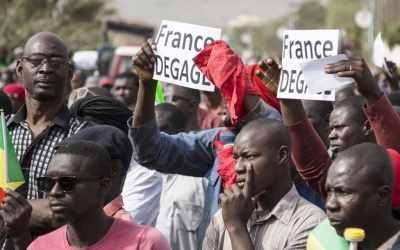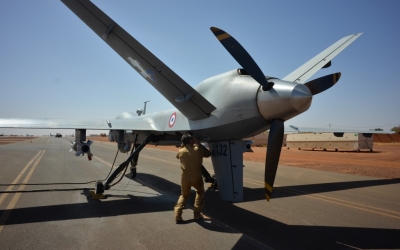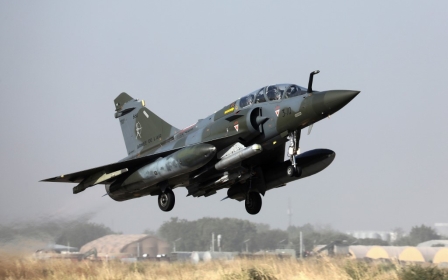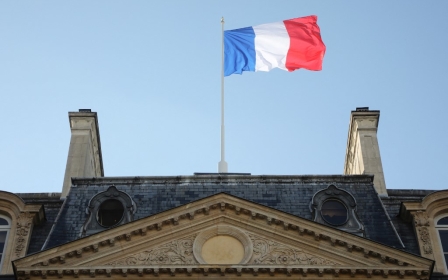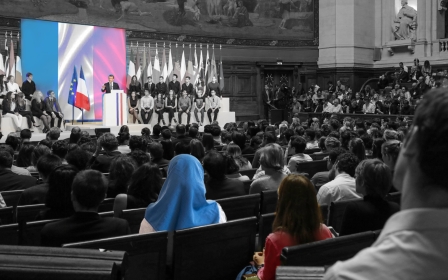France must investigate its potential war crime in Mali, activists demand
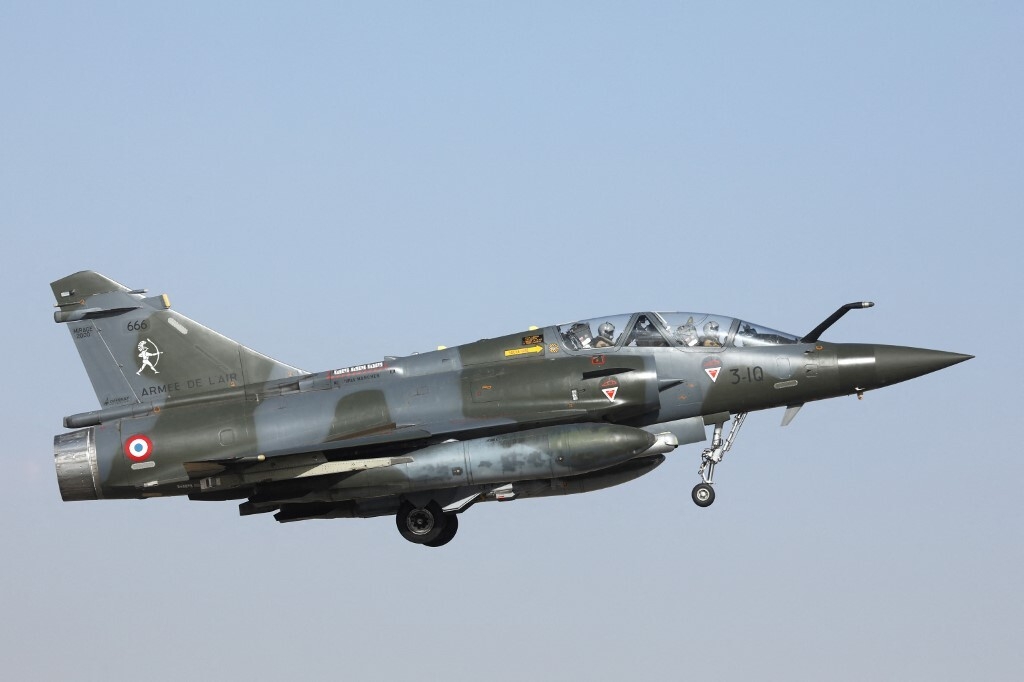
Human rights activists are demanding France open an investigation into an air strike that killed at least 19 civilians in central Mali, after a United Nations report contradicted claims by French officials that the target of the 3 January raid was an "armed terrorist group".
According to a report released this week by the United Nations Multidimensional Integrated Stabilization Mission in Mali (Minusma), France's account of targeting and killing dozens of fighters from the Katiba Serma armed group in the village of Bounti was heavily disputed.
Instead, the UN body found that the strike, led by a Reaper drone and two Mirage 2000 fighter jets hit a wedding party attended by more than 100 guests. Five men, understood to be - but not confirmed to be - part of the armed group, were in attendance.
'The French position that there were no wedding, no civilian casualties and no collateral damage, is clearly unfounded'
- Ousmane Diallo, Amnesty International
The report also came just days after local officials said a French air strike had killed six civilians in northern Mali, including teenagers who were hunting. The French military immediately rejected those claim, too.
France's outright rejection of the UN report has outraged human rights activists who have intensified calls for accountability.
New MEE newsletter: Jerusalem Dispatch
Sign up to get the latest insights and analysis on Israel-Palestine, alongside Turkey Unpacked and other MEE newsletters
"It is not a luxury to launch an investigation into an incident where there are massive civilian casualties," said Jonathan Pedneault, a conflict and crisis researcher at Human Rights Watch.
"This new UN report simply highlights the very important need for France to open a judicial investigation into this incident; interview all the people who were in the chain of command and have a proper understanding of what was known at the time of attack in terms of the nature of the gathering in terms of the presence of legal targets, ie: members of the Katiba, and evaluate whether the necessary precautions were taken before the strike was called," he told Middle East Eye.
"The only way to do that is launch an actual investigation to determine a) if there was indeed war crimes and b) to then establish the responsibilities and hold those people accountable."
'Not holding water'
Hours before the report was released, France refused to accept the UN's findings and called into question the report's methodology. France also refused to tell Minusma how it reached its conclusion that the gathering was an appropriate military target.
"The only concrete sources on which this report is based come from local testimonies," the French Defence Ministry said in a statement.
Ousmane Diallo, a researcher with Amnesty International in West and Central Africa, told MEE that France's version of accounts was "not holding water" given their failure to present any evidence.
"The French position that there were no wedding, no civilian casualties and no collateral damage, is clearly unfounded," Diallo said.
"And it is clear they did not use the principle of precaution, necessity and proportionality when assessing if the gathering was a military objective."
According to Minusma's report, the "special investigation was conducted in accordance with the methodology of the Office of the United Nations High Commissioner for Human Rights", adding that they had "conducted face-to-face individual interviews with at least 115 people and with at least 200 people during groupmeetings and conducted more than 100 telephone interviews".
Minusma declined to comment on France's reaction to the report.
'Emblematic of the French military'
Earlier this week, Stéphane Dujarric, a spokesman for UN Secretary-General António Guterres, told reporters "we stand by the report and the work of our colleagues in Mali".
Dujarric said the report raised "very significant concerns" about what steps countries take to verify that targets are legitimate military objectives.
The French versions of events were questioned just a few days after the attack, when Jeunesse Tabital Pulaaku, an advocacy group for Fulani herders, published the names of 19 civilians killed in the strike, including the father of the groom.
Diallo said that the immediate rejection of the report was "emblematic of the French military response to all allegations against them, regarding their impact on their activities on civilians".
"This is not the first allegation," Diallo said.
Mali has been struggling contain an insurgency that broke out in the north of the country in 2012, before spreading to the country's centre and neighbouring Burkina Faso and Niger.
French troops intervened in 2013 to to restore peace and security amid threats of separatism from the Tuaregs and a takeover by al-Qaeda-linked armed groups. It currently has 5,100 troops deployed across the Sahel region as part of Operation Barkhane.
Thousands of civilians are estimated to have been killed in the fighting and more than a million people have been displaced.
Middle East Eye delivers independent and unrivalled coverage and analysis of the Middle East, North Africa and beyond. To learn more about republishing this content and the associated fees, please fill out this form. More about MEE can be found here.


